We moved to an off-grid property to get closer to nature and become more self-reliant. This saved us money in so many ways… it has also cost us more than we had ever imagined. After two days doing the books and taxes, I thought I’d share some of our experiences with you!
Once we moved off the grid, life became incredibly cheap, especially compared to the city life we led before we came to our little homestead. Part of this is because life in Spain is just a lot cheaper than life in Belgium or the Netherlands (going out for dinner with 6 people in Aragon is about the same price as dinner for two in Amsterdam).
However, a big part of the money being saved now is thanks to the changes we made to our lifestyle and the setup of our little farm.
(this post was originally written in 2017, last updated October 2022)
#1 Saving Money on Television (and Commercials!)
Not having a television connection is definitely one of the perks of us moving here. We used to have one, but we gave it away as it would take up too much space in storage. And we’d be living in a tiny house for a while, there was neither room nor time for a television.
Turns out, we don’t need a television in a big house either. We spent years without a real TV, and only got one at the end of 2021 (7 years after we moved here) when our social life had really dwindled down due to Covid aftermath.
We got a Netflix subscription to watch shows (especially in winter when days are short and it’s nice in front of the fire. We used to watch on the computer or tablet when we wanted to (and where we wanted to!).
We also alternate between other services – we got Amazon Prime for the free deliveries (oh so convenient when many shops are far away) and we’ll sometimes sign up for a month or two of HBO or Disney Plus to watch a couple of specific things… then cancel again for the rest of the year.
What we don’t have now is a TV that is on most of the day without anybody watching it. We don’t have that screen staring at us in the living room, taking up a center role in a room that should be about living together – not about watching television. It makes space and time for so much more; we can put on music or listen to podcasts, listen to the birds and the chickens outside, or just sing and entertain each other.
But back to the main theme – not having a television saves us money as well. And I’m not just talking about the cost of the subscription; we now don’t get commercials that make us think we really need a bucket of expensive branded ice cream or this very special game. Several of our friends with children are in the same situation, and it’s amazing to see how their children are just as happy with some hand-me-down bags or generic children’s products, instead of nagging their parents about needing overpriced stuff featuring some TV show character.
#2 Fewer Opportunities for Impulse Buying. Or Buying in General.
Living off the grid and in the middle of nowhere has lowered our amount of impulse buying to a minimum.
Since we now have to make a much bigger effort in order to go and buy food, we tend to approach it with greater organisation. Most times, we plan our meals for at least a few days and act accordingly. In summer, we often skip groceries for a week or more as we just get some veggies from the garden. We still “need” the shops for products like wine, beer, tobacco and chocolate though.
In our past life in “civilization”, I’d also meet up with girlfriends to go shopping. Shopping days with girlfriends were fun – but also a drain for the wallet: even if I could stick to only buying the clothes I came for, we’d still get a drink here, lunch there, and always some extra accessories.
If we want to do some real shopping over here (clothes or specialist items), we drive to either Zaragoza (2h) or Reus-Tarragona (1h45). We group as much as possible in one trip: the long drive and short amount of time we can actually spend there, means I have to prepare a to-buy-list and just get everything that’s on there… no more impulse shopping at Ikea.
I’ve learned that often postponing to buy something you think you need, helps to save money as well. We often get to squeeze a couple of extra months (or even years) out of stuff or clothes.
The need for organization has reduced impulse buying in our household to almost zero on normal days. We still go astray sometimes, usually at the hardware store or the tree nursery. But then again, there’s no such thing as too many fruit trees!
#3 Cutting Down Entertainment and Going Out
Every time we go back to the city to visit our families, we treat ourselves to one big movie. James Bond, Star Wars, or a Marvel movie; when you only get to see one movie on the big screen that year, you tend to choose one that really needs a big screen!
Going to the movies used to be quite a regular thing, and we never thought much of it. Dinner and a movie, that’s date night, right? We used to go almost weekly and (usually) choose the small indie movies. Or we’d go see a stand-up comedian, a play or cabaret night, or even a musical with the girlfriends… We had regular jobs with good incomes and few worries on our minds.
On date nights, we’d easily spend in one night what we now spend on groceries for a whole month. We still have date nights – they might include grilled zucchini from the garden, a glass of wine from the local village’s winery and watching the milky way from our amazing FatBoy hammock. Or just as well popping a pizza in the oven and watching the replay of an old hit show (the Wire, anyone?) until one of us (definitely me) falls asleep on the couch.
Life never gets boring here though; there’d be a party here, a jam around the campfire there, and always more friends to go and visit. Before we even had people we’d call friends over here, our social agenda was already much fuller than it ever was in the city.
#4 No Takeaway or Fast Food
I do miss good sushi. My favourite is the maki with cucumber and avocado our little sushi place in Amsterdam used to make… and I refuse to eat cardboard with fish aroma from the supermarket. So yes, we do kind of miss takeaway.
What we don’t miss, is the amount of money we used to spend on it.
It was just so easy – not feeling like cooking? Let’s get takeaway. And before we knew it, we’d be 20-30€ lighter. Now when we don’t feel like cooking, we often get something we made earlier and put in the freezer or preserved in jars… just as tasty, has less garbage afterwards, and definitely a lot cheaper.
#5 Saving Money by Cooking from Scratch
We both always loved cooking – we often thought we didn’t have the time for it though. Just excuses – those steaming boxes or microwave meals from the supermarket were just so tasty! –> It turns out that making the same meals from scratch tastes even better.
I often make about three times as much as we actually need when I’m cooking from scratch. It allows for some flexibility in case a friend turns up unexpected (that’s the way I was raised and a hard habit to shake). If they don’t, I’ll split the meal in three parts: one gets eaten for lunch, one goes into the fridge for later that week (I can use the same salsa once with pasta, and once with rice for instance) and the third part goes into the freezer.
#6 Life in Spain is Cheaper than in Northern/Western Europe
It has to be said; life in Spain is just so much cheaper than in most other countries of Western Europe. Going for a full meal (three courses including drinks) on a week day won’t cost you more than 12€ (14$). And usually a nice meal at that! Renting a (small) house in one of the neighbouring villages starts around 200€ (230$) a month.
Most of our local friends combine a remote/online business or a part-time job elsewhere in Europe with living in Spain… which is a win-win: high wages, and low costs. Sometimes one of them will spend a few weeks working in the UK or Holland, and return with enough money to support their family for several months.
#7 Frugal Living with Home-Grown Food
Most days, we’ll be cooking from scratch. In summer, we hardly go to the shop for our meals; throughout the year, we eat veggies from the garden at least every couple of days.
It does cost us some money in seeds (and the setup of the garden wasn’t free either), but the amount of vegetables we’ll get from it, year after year, more than compensates for that. Also, those vegetables are so much healthier and tastier!
#8 More Room to Buy in Bulk
Keeping a decent pantry is an important part of the life we live now.
Moving away from our tiny city apartment and into a roomy country house means we have room to stock up on things; when there’s a buy-2-get-1-free promotion on something we eat regularly, I don’t have to think twice about having enough space in the pantry or enough time to find a recipe to make something out of those 10 kilos of overripe tomatoes. I can always make time for homemade goodness!
#9 Cutting your Own Hair
When we just moved here, I was just too busy to go to the hairdressers – and losing hours (a 20-minute drive, an hour inside, 20 minutes back, at least) when you could just do it yourself in 10 minutes didn’t seem worth it to me.
Then I continued doing it because why not? It’s extremely easy to do with long hair – I’ve never messed that up, just sometimes cut off a bit more than planned. It’s more difficult with short hair though as it’s pretty obvious when something’s not quite right.
And all hubby needs is some clippers….
All of that being said, we started going to the hairdressers during Covid – when borders between Spanish states were closed and a hairdresser-friend of us who lived right on the border lost all of her clientele that would usually come from Catalunya.
#10 Carpooling & Shopping for Others
In our area, we have a messaging group that is all about buying, selling, swapping… and carpooling. People will announce when they’re going to the city, and have extra space in their car; some will want a small amount of money to compensate for gas, but it’s still a lot cheaper than driving your own car or taking the bus.
In our circle of friends, we’ll also try and notify each other when we’re going to a shop that’s not local; someone might want to tag along or place an order for our next Zaragoza run.
#11 Bartering and Using Alternative Money
I’m a big fan of bartering. A friend will be having delicious jam, and I’ll just bake some bread or a cake in exchange for that. Or I’ve helped with people’s marketing in exchange for a nice massage. What’s not to love?
One form of indirect bartering also caught our attention – it’s using local alternative money. Say I baked bread for a friend but don’t need jam right now? She’d pay me in Furas – and I’d be able to use those Furas to buy flour for my bread. Win-win again! I’ve written about our moneyless market before – click here for the whole article!
#12: Saving Money on Pet Food
Full disclosure: we have fed our dogs and cats a so-called “raw” diet for years now: it’s called feeding BARF, Bones And Raw Food. We started when our little mix, Jinx, turned out to be heavily intolerant to all kinds of kibble… including several brands of expensive veterinary prescription pet food. This diet is not for everyone; it takes some research to assemble the right diet if you can’t buy it pre-made.
If you’d like to know more about feeding your dog fresh food, please read this book (in Dutch) or this book (in English).
When living in the Netherlands, we’d buy our dog food at a specialised pet shop – they’d have these frozen sausages that had all the necessary ingredients (meat, veggies, added minerals). All you needed to do at home was defrost them and feed the right amount to your animals.
Moving to Spain meant we no longer had access to these – so we started assembling their diets ourselves. This meant buying a lot of meat… We discovered local butchers are usually happy to give us their leftovers (bones! Chicken bits that humans won’t eat!) and will sometimes even sell us their regular meat at a discount, towards the end of the day. Add to that seasonal and fresh veggies… and our dogs’ current diet is way cheaper than feeding dog kibble. And they poo a lot less. Another win-win 🙂
#13 Where Off-Grid Living Costs Extra Money
There are a few things we spend quite a lot of money on – things we hadn’t exactly anticipated.
1. Transportation
Living in Belgium and Holland, a car is maybe handy, but not always a necessity. I bought my first car (a tiny Renault Clio) when I was about 30 – DIY-man was about 27 when he got his driver’s licence. For a while when we lived in Amsterdam, we didn’t even own a car. Everything can be done on foot or by bicycle there… And if you need to go further away, there’s always public transportation.
4 reasons why we don’t believe this lifestyle is doable without a car:
- “Living off the grid” also means off the public transportation grid: there are some busses coming into the area, but it’s 15 minutes by car to the bus stop. Easily over an hour by foot.
- Going to the nearest village by bike is a beautiful ride – but it’s got steep hills and that’s just a tad bit too much to do grocery shopping.
- If (God forbid) something would happen around here (whether it’s a fire or someone breaks something), we need to get away FAST
- And what if something happens to family or friends back “home”? With a car, we can drive there with one go.
So we got a car.
One first pitfall of that car was we’d go into the village every time we needed something. The gas bills were out of control – and we’d lose a lot of time too. We soon learned to group excursions: go grocery shopping AND to the hardware store AND to the butcher AND the baker’s AND drop by a friend to say hi… all in one go.
Another thing we didn’t quite take into account, was the damage the dirt roads here would do to our car. We have a 4×4 car so at least we’d be able to get up our hill at any time, and we’re also able to visit even our more remote friends. Still, the dust and stones and other stuff mean there’s quite a lot of maintenance to be done. We do try to fix things ourselves (there are always tie-wraps sticking out of our car! #campolife) but car maintenance is just more expensive.
2. Diy: Tools & Machinery
When we moved to our little piece of paradise, we were armed with a chainsaw, some small woodworking tools and a kitchen aid – we thought that would be enough to get us started. It was… but we turned out to need so much more. Some things we borrow (or we borrow their owner to come and help us), but other things we’ve had to buy, or pay someone to come and help us with.
Definitely not cheap!
3. Garden: Setup & Seeds
Gardening for profit? It’s probably possible… but unless you’ve got the perfect setup already, not the first few years. We tried doing it for a nickel and a dime at first – piling up organic materials to create soil, weeding a lot, saving seeds from things we ate,…
After two not-very-encouraging harvests, we went for raised beds. Quite the investment (we bought the wood to make the raised beds with, and then bought some soil to fill it with) but totally worth it – our plants are going so much better than ever before…
Using seeds from things we ate wasn’t always very useful either – we’d get plants that didn’t fruit, or no plants at all. I also save seeds from things that grew in my garden, but as I grow several things at once, I will often get hybrids; funny-looking zucchini-squash crosses, or melons that taste like… nothing. So every year, I buy at least a few bags of seeds or even seedlings, just to make sure I’ve got some normal veggies in the garden.
4. Fencing Is More Expensive Than You’d Think
We put in a fence for the chickens first for the alpacas later. Fences don’t seem expensive per meter… until you realise you need a LOT of it.
It’s Not About Money! Except When It Is.
One important thing we learned about money when moving here, is that it can change a relationship. It certainly did for us, and we know it did for a lot of our off-grid friends.
Instead of living a “standard” life with “standard” income and “standard” expenses, income can be much more fragmented when neither has a regular job – and expenses really are all over the place, as there are way more decisions to be made when it comes to money.
My friend Amy at “A Farmish Kind of Life” wrote a book that really hit a nerve with me, and I wholeheartedly recommend it to anyone wanting some extra insight into money matters – and communicating about it.
It’s not a book about saving money… It’s a book about a money-saving mindset. Grab yours here on Amazon!

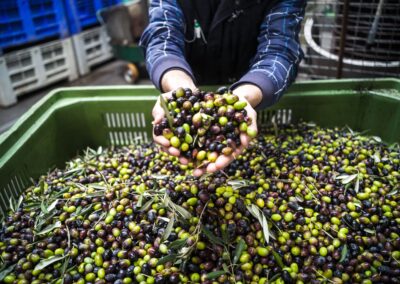
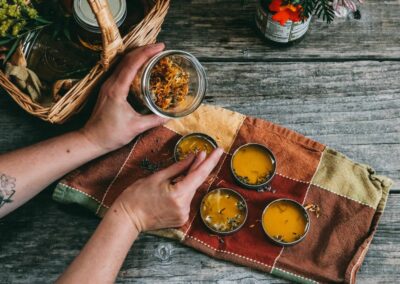
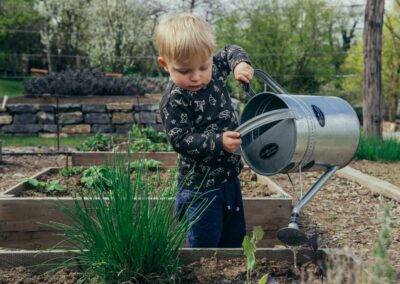


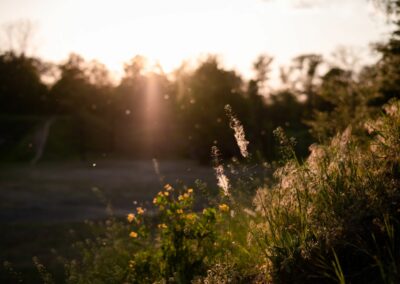
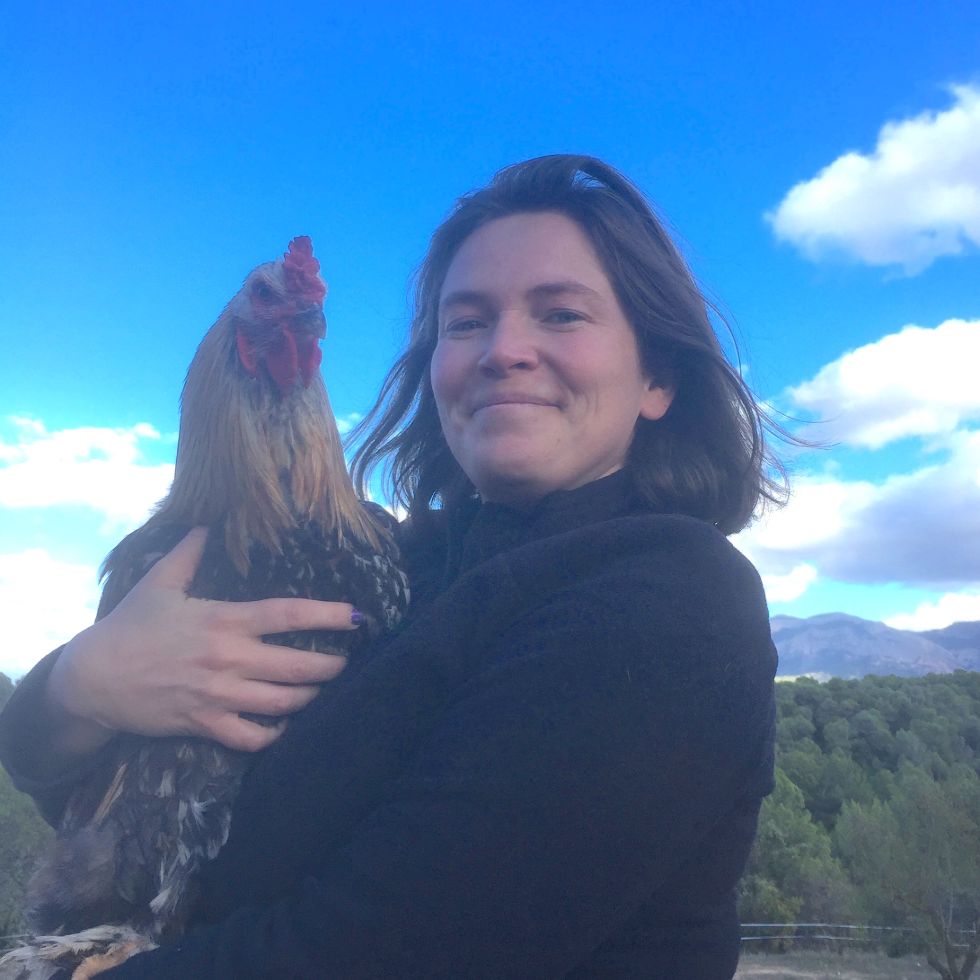
0 Comments